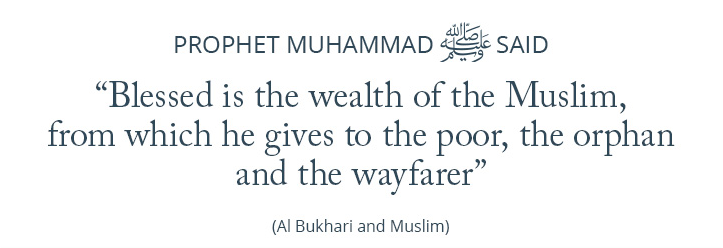The basic objective to pay zakat is to create balance in society


As one of the pillars of Islam, Zakat is a form of obligatory charity that has the potential to ease the suffering of our community, our main aim is to convert Zakat Takers of our community into Zakat Givers. Now You too have the opportunity to follow the teachings of this Hadith and create a positive impact to hundreds of lives of our community. Kindly pay your zakat to us
How does Zakat benefit the giver?
Zakat purifies the Muslim’s wealth, as Allah says in the Qur’an; “It keeps one away from sin and saves the giver from the moral ill arising from the greed and love of wealth.
Scan Below QR Code to Pay Your Zakat
What is Zakat
Zakat is not a random form of charity or imposed tax; Zakat is not a means of giving to be generous – it is something that Allah has ordained us to do – it is an obligation. As Muslims, Zakat has been set out as one of the pillars of Islam to achieve financial and spiritual reform, eliminate greed and consolidate the Islamic economy – this, in turn, will lead to its stability and prosperity.
The Qur’an describes Zakat as: The means by which to attain Allah’s mercy
Zakat stands as the Fourth Pillar of Islam, coming immediately after Salat and Som. Every Muslim possessing the designated minimal amount of wealth (called Nisab) for the full cycle of a year must, as a matter of worship, give Zakat.
What is Nisab
What is the nisab threshold? The Zakat nisab value is the minimum threshold required for an individual to be eligible to pay Zakat in that specific year. Your total overall wealth must meet or exceed the nisab value in order for you to be eligible to pay Zakat, which is prescribed as the equivalent of:
87.48 grams (7.5 tola) of gold or
612.36 grams (52.5 tola) of silver, respectively.
Who is eligible to receive Zakat
- The poor (al-fuqara), meaning low-income or indigent.
- The needy (al-masâkîn), meaning someone who is in difficulty.
- Zakat administrators.
- Those whose hearts are to be reconciled, meaning new Muslims and friends of the Muslim community.
- Those in bondage (slaves and captives).
- The debt-ridden.
- In the cause of God.
- The wayfarer, meaning those who are stranded or traveling with few resources.

